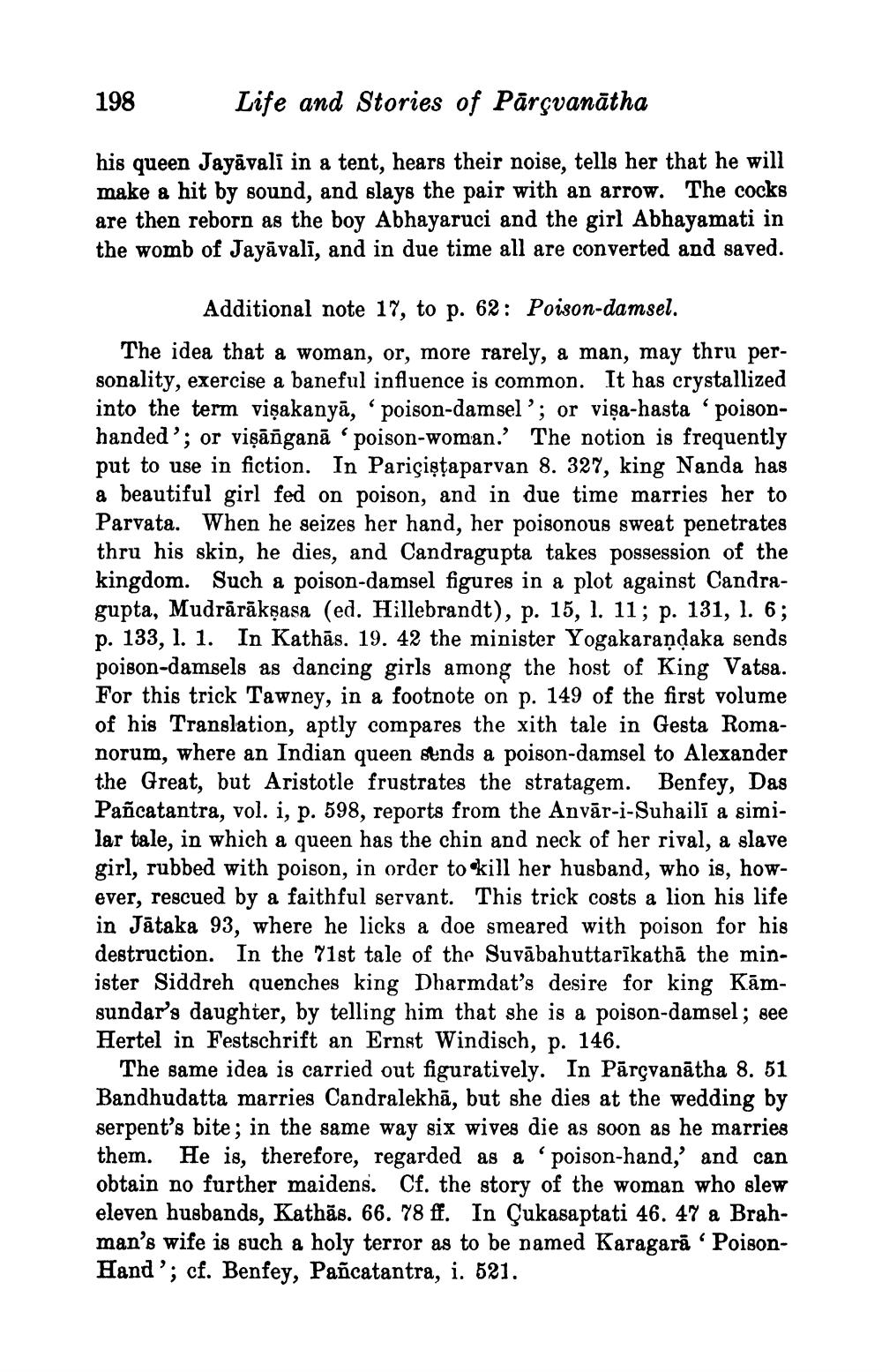________________
198
Life and Stories of Pārçvanātha
his queen Jayāvali in a tent, hears their noise, tells her that he will make a hit by sound, and slays the pair with an arrow. The cocks are then reborn as the boy Abhayaruci and the girl Abhayamati in the womb of Jayāvalī, and in due time all are converted and saved.
Additional note 17, to p. 62: Poison-damsel. The idea that a woman, or, more rarely, a man, may thru personality, exercise a baneful influence is common. It has crystallized into the term vişakanyā, 'poison-damsel'; or vişa-hasta poisonhanded'; or viņāñganā 'poison-woman.' The notion is frequently put to use in fiction. In Pariçiştaparvan 8. 327, king Nanda has a beautiful girl fed on poison, and in due time marries her to Parvata. When he seizes her hand, her poisonous sweat penetrates thru his skin, he dies, and Candragupta takes possession of the kingdom. Such a poison-damsel figures in a plot against Candragupta, Mudrārākşasa (ed. Hillebrandt), p. 15, 1. 11; p. 131, l. 6; p. 133, 1. 1. In Kathās. 19. 42 the minister Yogakarandaka sends poison-damsels as dancing girls among the host of King Vatsa. For this trick Tawney, in a footnote on p. 149 of the first volume of his Translation, aptly compares the with tale in Gesta Romanorum, where an Indian queen stnds a poison-damsel to Alexander the Great, but Aristotle frustrates the stratagem. Benfey, Das Pañcatantra, vol. i, p. 598, reports from the Anvār-i-Suhaili a similar tale, in which a queen has the chin and neck of her rival, a slave girl, rubbed with poison, in order to kill her husband, who is, however, rescued by a faithful servant. This trick costs a lion his life in Jātaka 93, where he licks a doe smeared with poison for his destruction. In the 71st tale of the Suvābahuttarīkathā the minister Siddreh quenches king Dharmdat's desire for king Kāmsundar's daughter, by telling him that she is a poison-damsel; see Hertel in Festschrift an Ernst Windisch, p. 146.
The same idea is carried out figuratively. In Pārçvanātha 8. 51 Bandhudatta marries Candralekhā, but she dies at the wedding by serpent's bite; in the same way six wives die as soon as he marries them. He is, therefore, regarded as a 'poison-hand,' and can obtain no further maidens. Cf. the story of the woman who slew eleven husbands, Kathās. 66. 78 ff. In Çukasaptati 46. 47 a Brahman's wife is such a holy terror as to be named Karagarā 'PoisonHand'; cf. Benfey, Pañcatantra, i. 521.




